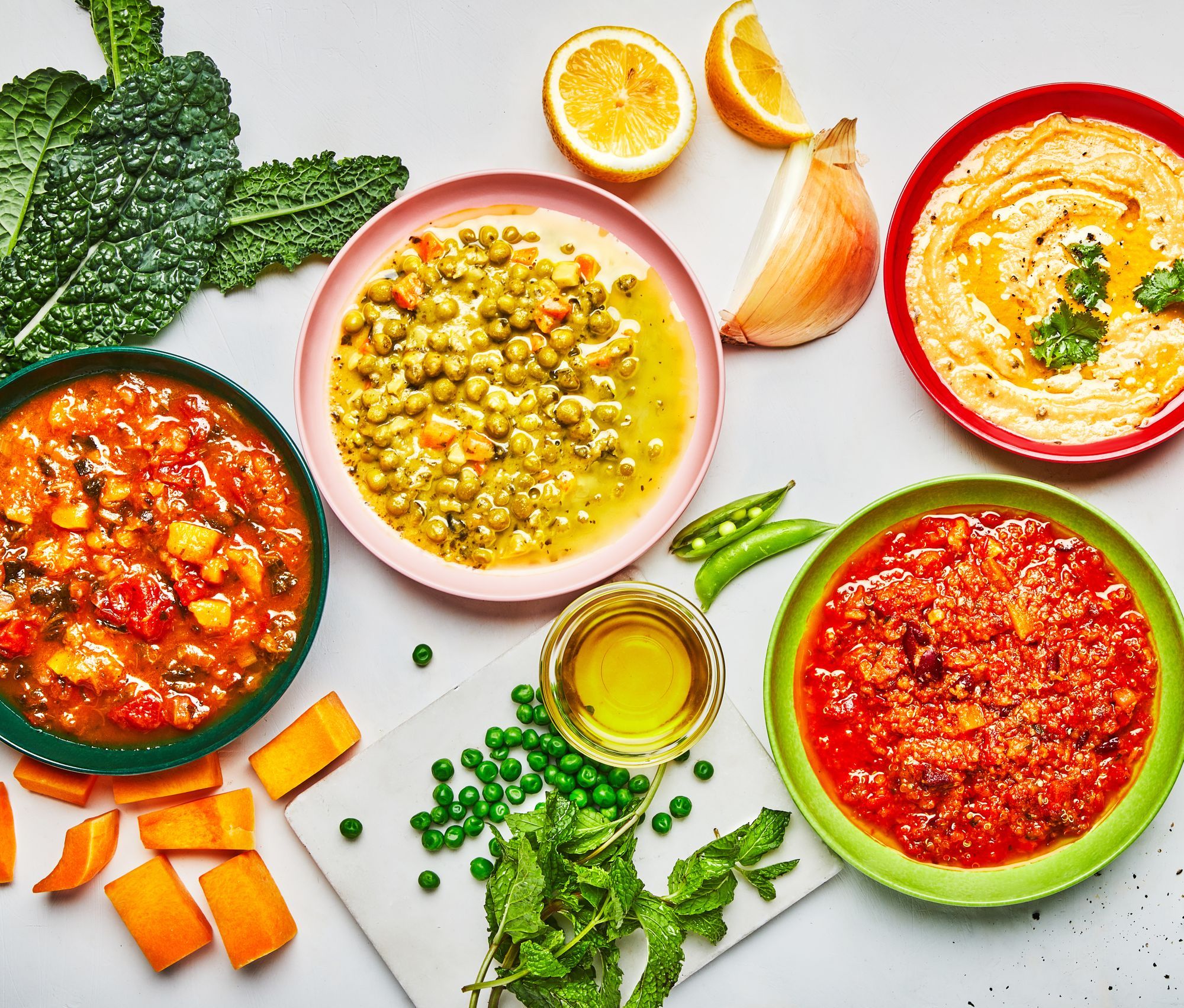
If you hear the word flexitarian and think to yourself, “flexi-what?” you’re not alone. The meaning of flexitarian is a relatively new portmanteau for being a flexible vegetarian (also known as semi-vegetarian), someone who eats mostly plant-based but occasionally dips back into the meat department. There aren’t many rules of a flexitarian diet, which is in and of itself a central tenet of the diet.
The word has been around since the ‘90s but it really took off in 2008 when dietitian Dawn Jackson Blatner wrote the book, The Flexitarian Diet, which ditches calorie counting and portion monitoring in favor of simply adding more plants to mealtime one day at a time which helps to crowd out (rather than cut out) meat.
Meatless, Most of the Time.
A flexitarian diet makes eating a whole foods plant-based diet easy for people who otherwise struggle with restrictive diets that eliminate large swaths of foods. The strategy is to take baby steps not giant leaps. According to research, the number of people who practice some form of flexitarian diet, by reducing their consumption of meat, processed foods and refined sugars, is steadily growing.
Habit changes start small instead of a cold-turkey overnight overhaul. Beginner flexitarians typically have 2 meatless days per week, advanced flexers strive for 3 or 4 totally plant-based days, and expert flexitarian diet followers rock five or more days going all the way veg. The sweet spot for most flexitarians is an 80/20 percentage of plant-based and omnivorous eating.If you’ve ever heard of reducetarianism, you might think it sounds the same but there’s one key difference between them: Reducetarians steadily reduce their intake of not just meat but dairy and eggs with the goal of eventually eliminating them completely, whereas flexitarians never fully leave omnivorous eating behind.
Ditch Rules, Build Structure.
A flexitarian diet is great if you want to try out new modes of eating and avoid strict eliminations—which is especially helpful for people who struggle with eating disorders and chronic illness. The upside to the flexitarian approach is that a less rigid eating pattern is more adaptable to individual tastes, dietary needs and health concerns. But the downside is that on its own, it lacks structure and can lead you to burn out or gradually revert back to old habits.
Without firm boundaries and measurable results, it can be less effective to achieve personal goals like eating healthier, more ethical and reducing your environmental footprint. In order to keep up with a new habit, you need both balance and support. A small group of friends who share accountability with you, someone you can check in with or an easy daily routine that helps you shift your habits. Splendid Spoon definitely falls under a flexitarian diet but one that offers support and structure.
At Splendid Spoon, we help you swap in one vegan meal a day with options for breakfast, lunch, and dinner, helping you with a healthy diet plan. It’s one easy shift that’s do-able even if your schedule is hectic and you’re juggling work meetings, exercise classes, date nights or after school pick-ups. Building upon that 1 plant-based meal change each day (rather than full days each week) offers more flexibility while maintaining structure that can help you habit change with ease.
Ready to add more plants to your diet? Set up your delivery today.
Questions? Email [email protected].
